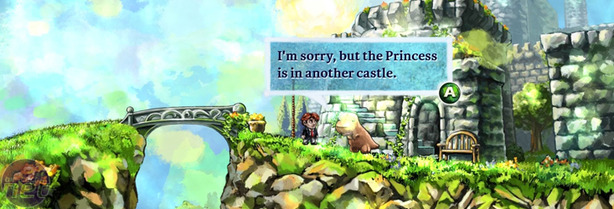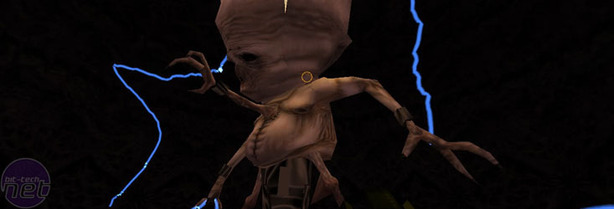Nostalgia is the Enemy
While nostalgia is, as Alex said in an old gaming podcast, an important part of how people enjoy PC gaming it’s always worth reminding ourselves that nostalgia is a double-edged sword. On the one hand it allows us to look back with impossible fondness on game experiences we had a long time ago and, when we find something that reawakens that nostalgia, then it can heighten enjoyment intensely.I say that speaking from experience too, as playing through Braid recently tapped into memories that I wasn’t even overtly aware of. The feeling of sitting in front of a screen with my shoulders hunched in frustration, desperately trying to overcome a mental impasse and figure out how to reach the hidden stars sent me tumbling back to my childhood and bought up a sudden wash of memories that had long been buried.
Dealing with these games specifically I’ve had the rush of nostalgia too and I probably couldn’t count on two hands the number of times I’ve drunkenly ranted to my girlfriend about how amazing Deus Ex is. I probably can’t figure out why she puts up with it either.
At the same time though, nostalgia can be a dangerous thing for hobbyists. It can blind us to innovation and through over-exposure can sap all the enjoyment out of these and the games we compare them too. Worse, it can stop other people from enjoying the same experiences if we don’t stop going on and on about how good they are. Nothing ever lives up to the hype and, as a simple example, I’ve orated on the excellences of Deus Ex to such a degree that I have friends who flat-out refuse to play it purely as a way to punish me. Fools.
It should be obvious then that the point of this piece isn’t actually to say that these old games are rubbish, but to say that nostalgia is rubbish. The games mentioned in this article are all fantastic and in reality a fair and suitably open mind would dismiss all the faults that we’ve mentioned. It’s a testament to Valve’s ability that gamers are so swept up in the moment-to-moment plot that most never even pause to question how the headcrabs, vortigaunts and Combine are all linked and it shouldn’t matter that SHODAN is the spine of the story in SS2 as long as you have fun.
There are other games we could have chosen, the most personally relevant of which would probably be The Secret of Monkey Island, but that choice was frankly spoiled by an inability to find any flaws. That’s not to say that it doesn’t have any flaws – there are no perfect games – just that it’s a game that I look at with such rose-tinted glasses as to be nearly totally unreliable about it. That’s why, when the time came to review Monkey Island: Special Edition, Richard wrote the review instead of me; fresh eyes are important. Monkey Island is the final proof that we should be wary of building unrealistic memories.
Fresh eyes aren’t just important for critics though; they’re exciting for gamers too. The reason that many of these games stand out so brilliantly is that they shattered expectations and give players the feeling of having found something new. Half-Life’s speed and full immersion, Deus Ex’s sense of freedom; these were things that were new.
The point of all this then is simply that new things are happening all the time, but it’s easy to get so caught up in remembering retro titles and comparing new games to old ones that we miss them even when they’re staring us straight in the face.
I love Deus Ex. It’s possibly my most favourite game, ever, and I wouldn’t want to detract from anyone else’s enjoyment of it – but blind love is the same as no love and if you can’t appreciate the sour then you can’t ever really taste the sweet.

MSI MPG Velox 100R Chassis Review
October 14 2021 | 15:04












Want to comment? Please log in.